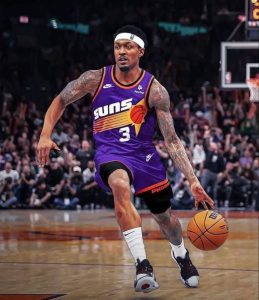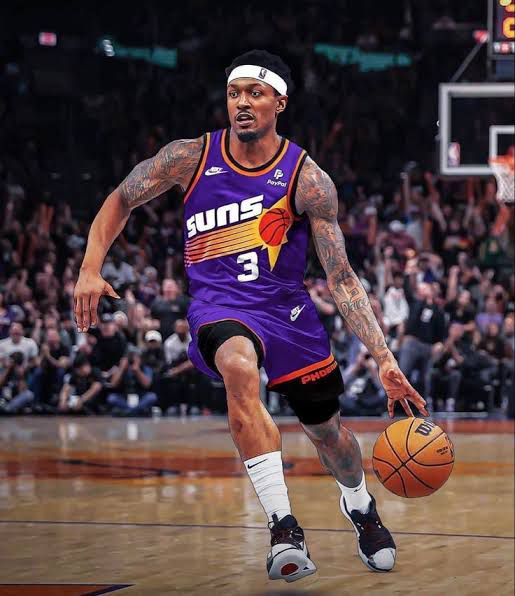
When the Phoenix Suns acquired Bradley Beal in a blockbuster trade last offseason, the move was heralded as a championship-winning decision. The idea of pairing Beal with Devin Booker and Kevin Durant created visions of an offensive juggernaut that would overwhelm opponents with firepower. However, as the season has progressed, the reality has been far from the dream. Beal’s presence has done more harm than good, exposing glaring flaws in the Suns’ roster construction and jeopardizing their title hopes.
A Poor Fit from the Start
On paper, adding a three-time All-Star like Beal seemed like an easy win. However, in practice, his fit has been anything but seamless. Beal is a ball-dominant scorer who thrives in isolation and mid-range play—traits that Booker and Durant already bring to the table. Instead of complementing each other, the trio often looks disjointed, with each player taking turns rather than playing in a cohesive system.
Additionally, Beal is not a natural point guard, yet the Suns have often relied on him to handle playmaking duties due to their lack of a true floor general. With Chris Paul gone and no elite distributor in sight, the offense frequently stalls, leading to inefficient possessions and hero-ball scenarios. Beal’s presence has complicated the team’s offensive flow rather than enhancing it.
Injury Woes and Availability Issues
Perhaps the most glaring issue with Beal’s tenure in Phoenix has been his availability—or lack thereof. Since joining the Suns, he has missed a significant number of games due to injuries, a continuation of a troubling trend from his final years in Washington. The Suns were already a team with durability concerns, especially with Durant’s injury history, and adding Beal to the mix has only exacerbated the problem.
A team built around three injury-prone stars is a recipe for disaster. The lack of continuity has prevented the Suns from building chemistry, forcing the coaching staff to constantly adjust lineups and rotations. Without a consistent presence on the floor, it’s difficult to develop the rhythm necessary for a deep playoff run.
A Defensive Liability
Beyond offensive concerns, Beal’s defensive struggles have also been a major issue. The Suns lack perimeter defenders, and Beal does little to improve that weakness. Unlike a traditional two-way guard, Beal has never been known for his defensive prowess, and his presence in the lineup often forces Booker or Durant to exert more effort on defense, leaving them drained on offense.
With Beal in the backcourt, opposing teams frequently target him, exposing Phoenix’s inability to stop elite guards. The Suns’ defensive rating has suffered as a result, and in a Western Conference loaded with star guards, this vulnerability could be their downfall in the playoffs.
The Future Looks Grim
The Suns mortgaged their depth and financial flexibility to acquire Beal, and now they’re paying the price. His massive contract makes it nearly impossible to build a well-rounded roster, leaving the Suns with glaring holes that they can’t afford to fix. If things don’t turn around soon, Phoenix may find itself in a worse position than before the trade.
Bradley Beal was supposed to elevate the Suns to championship status, but so far, his presence has done the opposite. Instead of a contender, Phoenix looks like a broken experiment—one that may not be fixable.
